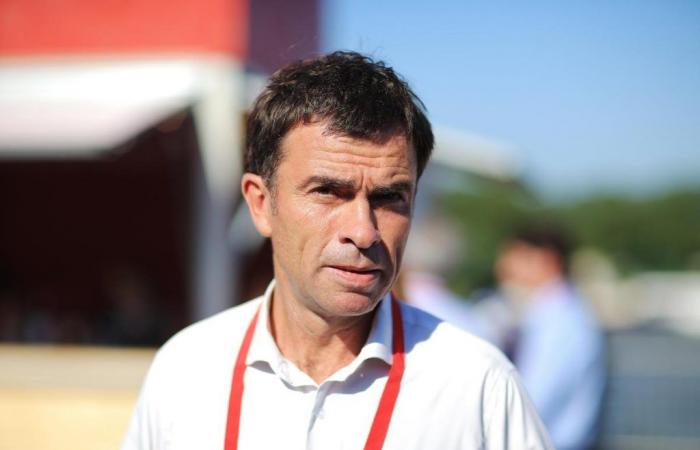A decline in wine consumption, marketing difficulties, a particularly virulent and early mildew epidemic, adaptation to climate change… The wine industry is in tough times. And as if that were not enough, there is the prospect of great political instability in the wake of the dissolution. While with Bordeaux wine festival the biggest popular showcase of the vineyard opens, the sector with 50,000 jobs in Gironde is worried. Update with Bernard Farges, vice-president of the Bordeaux Interprofessional Wine Council (CIVB) and president of the National Committee of Interprofessional Wines with Designation of Origin and Geographical Indication.
Archives Guillaume Bonnaud / SO
Bordeaux celebrates wine allowing you to discover all the appellations of Gironde and elsewhere.
The dissolution is the promise of great political instability in the weeks to come, does that worry you?
Instability is bad for the market. It is also bad for the ongoing files of the wine industry that we have been bringing to the government for several months. Today, everything is at a standstill. We managed at the last minute, with the support of Girondin parliamentarians, to have the second grubbing plan enacted. In three weeks we would have had difficulties. In this campaign, we are not talking about viticulture, because we don’t have time… We will need elected officials to listen to us, we have several areas of concern.
Which ?
A grubbing-up plan throughout France to reduce wine-growing potential; This topic is on pause, it will have to be completed. It completes the Bordeaux system, the first and only one on the table and which works despite the imperfections. We have the subject of farmers’ remuneration which emerged during the agricultural crisis, developments in Egalim laws. This work was carried out today for an examination in the fall, we do not know how it will be resumed. We will continue to carry out our intentions: to strengthen remuneration in negotiations with large-scale distribution and trading. In this campaign, we hear reassuring statements, but we will have to work towards rapid implementation. Because the trade negotiations for 2025 will start quickly.
Both the RN and the New Popular Front agree to leave free trade treaties, the word “protectionism” reappears…
Wine is neither right nor left. Wine brings people together, that’s its primary vocation. We were able to exchange views at the Agricultural Show with different political groups. They tell us that free trade agreements are bad things in principle. We saw this in the Ceta vote, between Canada and Europe, where almost all political parties voted against. But it was a good agreement, for agriculture and viticulture, an export activity. If we close the doors to our markets, it will worsen the export situation. Considering in principle that trade agreements are bad is a catastrophe, a danger for viticulture.
The other big subject – which is not just Bordeaux – is the de-consumption of wine?
We are finalizing a sector plan which is based on three points. Adapt the production potential, this requires a reduction of surface areas in France. Bordeaux showed it, took responsibility for it, financed it. We also aim to relaunch consumption with different products, with a different way of speaking, other modes of consumption. The Wine Festival which begins this Thursday, June 27 takes part in this.
There is a feminization of wine consumption, fewer red wines and we need lighter, less alcoholic reds. Finally, we must revive and support consumption in France and exports. I draw attention to the fact that part of the political staff supports the hygienists. It is essential that France and its leaders support and embrace wine consumption for what it is. We are not here to make the French drunk, we are here to bring them together, to bring pleasure.
Archives Guillaume Bonnaud / SO
Now annual, the Wine Festival is one of the biggest popular showcases of the vineyard.
Archives Guillaume Bonnaud / SO
On the quays, during Bordeaux wine festival. “There is a feminization of wine consumption,” notes Bernard Farges.
Do you agree with Joël Boueilh, the president of the Vignerons coopacteurs, that “viticulture resembles a house of cards on a shaking table”?
It’s true, for many months, it took time to accept it, but the sector is in danger. We need a State attentive to the wine industry, which represents 60 departments in France, to respond to structural needs: reducing surface areas, boosting marketing and exports. If we close the borders, if we repeat that wine is bad for your health, if we do not consider that wine is a product that must be supported, we will not succeed.






